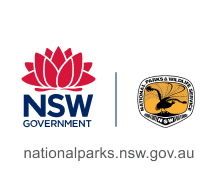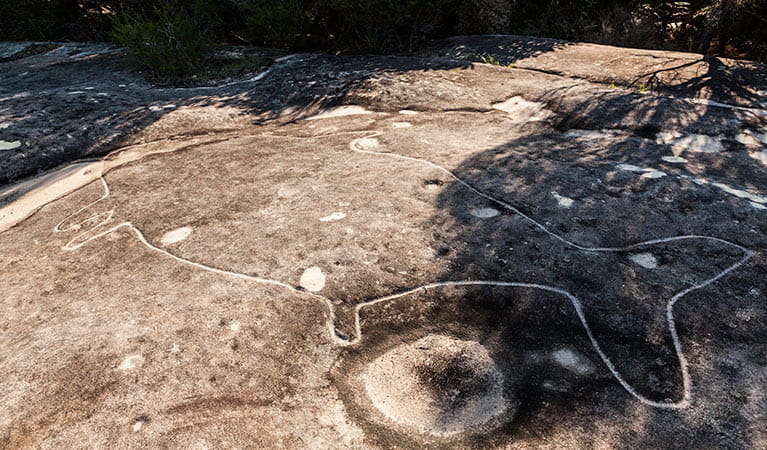School excursion
The Australian colonies at Jibbon Beach
Royal National Park
Overview
This excursion is currently being revised to be delivered in line with NSW Education’s Aboriginal and Torres Strait Islander Principles and Protocols. We will be updating this excursion's name and information online soon.
Read more about The Australian colonies at Jibbon Beach
We'll learn about the beliefs and values of the Dharawal People and their strong connection to Country. Together we'll examine a number of spiritual sites and enact cultural protocol, showing respect for elders past and present.
We'll traverse a rocky outcrop and view Aboriginal rock engravings up close. Students will learn about the Dharawal seasonal calendar, explore middens and learn about gunyahs (shelters) by recreating an Aboriginal camp.
The group will come away with a deep appreciation for the way of life of the Dharawal People. Students will understand how life changed for the Dharawal People following British settlement in the 1770s.
For program outline, safety and practical information about this excursion, see info for teachers
| Stage | Stage 3 (Years 5-6) |
|---|---|
| Learning area | History |
| Student outcomes |
HT3-1. Describes and explains the significance of people, groups, places and events to the development of Australia HT3-2. Describes and explains different experiences of people living in Australia over time HT3-5. Applies a variety of skills of historical inquiry and communication |
| Objectives |
Students will:
|
Excursion details
- When
Weekdays during school term.
- Availability
- Guided. Available on request.
- Duration
- 4hrs
- Grading
- Medium. Guided activities in a park on grass, along a beach, through a bush track and along a headland.
- Price
-
$17 per student for groups of 25 or more. GST included. For smaller groups conditions apply.
- Accessibility
- No wheelchair access
- Meeting point
- Bonnie Vale picnic area carpark (enter via Sea Breeze Lane)
- Equipment
provided - Yes. All equipment provided.
- Booking
- Contact your local NSW National Parks office for more information about the updated excursion.
Local alerts
For the latest updates on fires, closures and other alerts in this area, see https://www.nationalparks.nsw.gov.au/education/stage-3-history-the-australian-colonies-jibbon-beach/local-alerts
Operated by
- School excursion inquiries - Sydney South
- 02 9542 0615
- npws.royalguidedtours@environment.nsw.gov.au
- PO Box 144, Audley NSW 2232
Park info
- in Royal National Park in the Sydney and surrounds and South Coast regions
Royal National Park is open 7am to 8.30pm but may have to close at times due to poor weather or fire danger.
-
Park entry fees:
$12 per vehicle per day. Payment options include Audley Visitor Centre, vehicle entry stations, pay machines and the Park’nPay app.
Vehicles over 8 seats: $4.40 per adult, $2.20 per child (per day). Teachers/educational supervisors: free (1 adult per 10 students).
Buy annual pass.
Info for teachers
All the practical information you need to know about The Australian colonies at Jibbon Beach.

